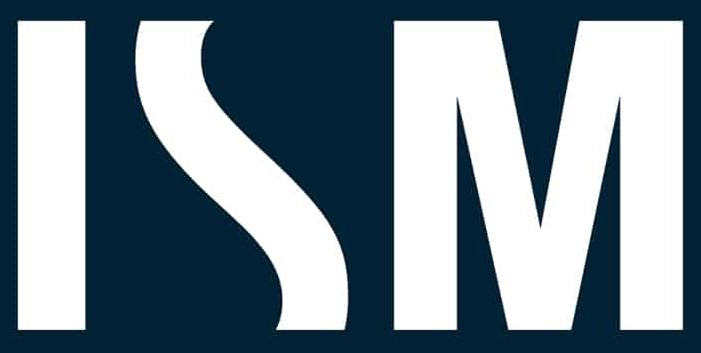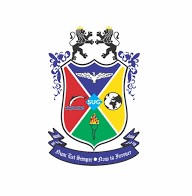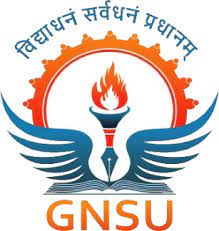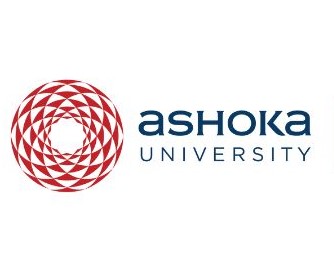
Top Trending Universities










Duration :
Average Salary :
Average Fees :
Job Demand:
B.Tech Applied Electronics and Instrumentation is a four-year undergraduate programme that covers topics such as extremely large-scale integration, semiconductors, embedded systems, biomedical instrumentation, and other core electronics and instrumentation topics. Students who complete a B.Tech in Applied Electronics and Instrumentation Engineering can work in a variety of industries in India, including electrical appliances, automobiles, telecommunications, automation, and more.
| Type of Degree | Bachelors |
| Full Form of degree | Bachelor of Technology in Applied Electronics and Instrumentation |
| Duration of degree | 4 Years. |
| Age criteria | 17-27 years |
| Minimum Percentage required | 50% marks in 10 +2 |
| Average Fees of course | 15,000 to 1.25 lakh INR |
| Similar Areas of Study | B.Tech Electrical and Electronics Engineering, B.Tech Electronics and Communication Engineering |
| Average Salary | 3 lakh INR per year |
| Job Roles | Instrumentation Engineer, Automation Engineer, Embedded Software Engineer, Test Engineer, Service Engineer, Electrician, Project Engineer, etc. |
Applied electronics and instrumentation engineering," according to Wikipedia, is an advanced branch of engineering that deals with the application of existing or known scientific knowledge in electronics, instrumentation, measurements and control for any process, practical calibration of instruments, process automation, and so on. It's a mix of electronics and instrumentation design.
The B.Tech in Applied Electronics and Instrumentation programme aims to provide students with technology-oriented knowledge in fundamental electronics, instrumentation engineering, and broader applications. The main engineering principles, their application in diverse electrical systems, electrical circuit design, vehicle manufacturing, electronics design, control systems, and other topics in the B.Tech Applied Electronics and Instrumentation programme.
B.Tech Applied Electronics and Instrumentation Engineers
The specific prerequisites for admission to a B.Tech in Applied Electronics and Instrumentation programme vary by college. The following are the typical eligibility requirements that most universities, including reputable government colleges, use for admission to B.Tech in Electronics Engineering:
Although some universities admit students to B.Tech Applied Electronics and Instrumentation Engineering programmes based on JEE Main scores, others have their own entrance exams. Direct entry or a national entrance exam, such as the JEE Mains, are used to select students for the B.Tech Applied Electronics and Instrumentation Engineering programme. Because the course is part of the B.Tech programme, it has a comparable application process. Though the admissions process differs each college, the following are the stages that need be followed in order to gain admission:
Candidates can apply for B.Tech applied electronics and instrumentation both online and offline. Documents like the aadhar card, class 10 and 12 mark sheets, address verification, and so on must be submitted in both procedures.
Applicants who achieve a score higher than the cutoff on the entrance exam will be eligible to participate in the e-counseling procedure for B.Tech applied electronics and instrumentation Applicants who have registered can view the number of colleges and streams that are available to them. Applicants can fill in and lock their options in order of preference.
In India, engineering has traditionally been the most popular course. Applicants must pass the B.Tech applied electronics and instrumentation engineering entrance exams in order to be admitted to engineering institutions. Some national, state and university-level entrance exams are listed below:JEE MAIN
Fees for Applied Electronics and Instrumentation Engineering (B.Tech)
The prices for a B.Tech in Applied Electronics and Instrumentation range from INR 15,000 to 1.26 lakhs per annum. The fees are determined by the universities' infrastructure, reputation, and other amenities. The following are the fees for a B.Tech in Applied Electronics and Instrumentation at some of the best universities:
| B.Tech applied electronics & instrumentation engineering Colleges | Fees of course |
| College of Engineering, Trivandrum | INR 24,000 |
| Netaji Subhas University of Technology (NSUT), Kolkata | INR 4 LPA |
| Heritage Institute of Technology, Kolkata | INR 3 PA |
| St. Joseph's College of Engineering, Palai | INR 3 PA |
B.Tech Applied Electronics and Instrumentation, like other engineering courses, is a hands-on programme. According to NIRF, the best colleges in India for B.Tech Applied Electronics and Instrumentation are:
| NIRF Ranking | B.Tech applied electronics & instrumentation engineering Colleges |
| 30 | BITS Pilani |
| 85 | College of Engineering Trivandrum |
| 154 | Heritage Institute of Technology Kolkata |
| 157 | Maulana Abul Kalam University of Technology |
| 160 | St. Joseph’s college of Engineering Palai |
The ideas and operations of measurement/electronic devices used in the design and configuration of automated systems are the primary emphasis of the B.Tech in Applied Electronics and Instrumentation course. Applied Electronics and Instrumentation Engineering can be found in a wide range of sectors.
The disciplines covered in B.Tech Applied Electronics and Instrumentation are as follows:
The B.Tech Applied Electronics and Instrumentation programme may appeal to aspirants who were interested in science during their childhood and participated in science projects. The following short questions and answers may help you understand why you might choose to pursue a B.Tech in Applied Electronics and Instrumentation:
B.Tech Applied Electronics and Instrumentation Engineering is an undergraduate degree that entails studying many forms of production line control systems. In the course, students also study about instrumentation boards, advanced control systems, automation, industrial robotics, and machine learning. As a result, the B.Tech Applied Electronics and Instrumentation programme opens up a wide range of career options.
Higher education is available to those who want to gain in-depth knowledge in a specific specialisation in electronics and instrumentation. M.Tech programmes are a fantastic choice. Following their M.Tech, students can pursue a career in research. After finishing a B.Tech in Applied Electronics and Instrumentation, one can pursue the following courses:
B.Tech Applied Electronics and Instrumentation Engineers earn an average starting salary of INR 3.1 LPA. B.Tech Applied Electronics and Instrumentation Engineers can earn around INR 5.4 LPA in their mid-career. B.Tech Applied Electronics and Instrumentation Engineers with experience can earn up to INR 12 LPA.
Options for a Career After completing a bachelor's degree in applied electronics and instrumentation engineering, Electronics and instrumentation engineering employment are accessible in both the public and private sectors in a variety of industries. Research and development, thermal power stations, steel factories, refineries, cement and fertilizer plants, and other departments that hire B.Tech Applied Electronics and Instrumentation Engineering graduates include. Some job roles for B.Tech Applied Electronics and Instrumentation Engineering graduates include the following:
B.Tech Applied Electronics and Instrumentation Engineer Career Prospects and Job Scope The scope of B.Tech Applied Electronics and Instrumentation engineering is extensive. To coordinate complex projects as an instrumentation engineer, one must have project management and team-building skills. Programming abilities are also in high demand. Furthermore, as an electronics and instrumentation engineer, practical expertise is essential for success. Students with a B.Tech in Applied Electronics and Instrumentation can work in the following fields after graduation:
Engineers with a B.Tech in Applied Electronics and Instrumentation can work in a variety of fields. The following are some of the areas where B.Tech Applied Electronics and Instrumentation graduates can find work:
Salary Packages for B.Tech Applied Electronics and Instrumentation Engineers in Information Technology B.Tech Applied Electronics and Instrumentation jobs pay an average of INR 3.1 LPA as a starting salary. The salary of an instrumentation engineer is determined on their level of expertise in the field. In addition, pay packages are frequently determined by the organisations that are employing. Multinational enterprises and government agencies, in comparison to other organisations, provide better packages.
A few career roles for B.Tech Applied Electronics and Instrumentation engineers are shown below, along with their typical annual salary:
| Job role | Annual Salary in INR |
| Instrumentation Engineer | 3.3 lakh |
| Project Engineer | 3.38 lakh |
| Instrument Control | 4.1 lakh |
Other public-sector B.Tech Applied Electronics and Instrumentation occupations include:
Candidates with a B.Tech in Applied Electronics and Instrumentation Engineering may apply for private jobs. Aspirants succeed in their careers, private firms also provide lucrative packages. A few B.Tech Applied Electronics and Instrumentation jobs in private companies are listed below:
| Top PrivateCompanies | Job Role | Annual Salary in INR |
| Godrej & Boyce Mfg. Ltd. | Electrical Design Engineer | 3.5 lakh |
| Biocon | Instrumentation Engineer | 1.6 lakh |
| Robert Bosch | Electronics Engineer | 5.4lakh |
